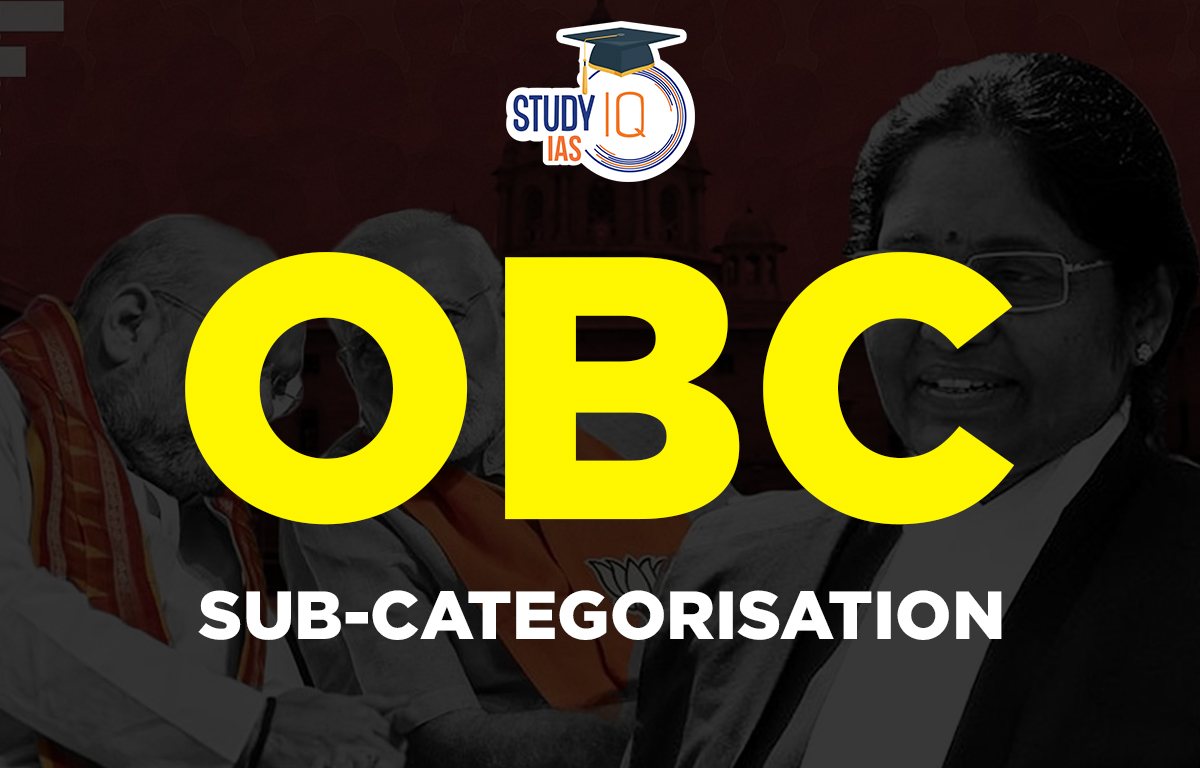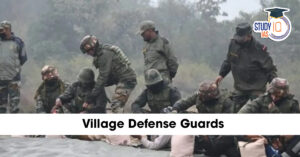Table of Contents
Context: Recently, Justice G. Rohini-led commission for the sub-categorisation of other backward classes (OBCs) has been given 14th extension in its tenure by the President
About Commission
- It was set up by the President under Article 340 of the Indian Constitution to sub-categorise OBCs so that the benefits of reservation reach all of them.
- It was formed in October 2017, and was initially given 12 weeks to finish the task of sub-categorising the nearly 3,000 castes within the OBC umbrella.
- Terms of reference for Commission:
- To examine the extent of inequitable distribution of benefits of reservation among the castes or communities included in the broad category of OBCs with reference to such classes included in the Central List.
- To work out the mechanism, criteria, norms and parameters in a scientific approach for sub-categorisation within such OBCs.
- To take up the exercise of identifying the respective castes or communities or sub-castes or synonyms in the Central List of OBCs and classifying them into their respective sub-categories.
- To study the various entries in the Central List of OBCs and recommend correction of any repetitions, ambiguities, inconsistencies and errors of spelling or transcription.
Need for OBCs Sub-Categorisation
- In India, OBCs get 27 per cent reservation in jobs and education provided by the Centre.
- Inequity in Reservation: Small group of dominant OBC communities were crowding out a large number of communities from the 27% OBC quota.
- Skewed Benefit: According to 2018 data, just ten OBC communities have taken the 25 per cent of reserved central jobs and institutional seats.
- 97 per cent of the reserved jobs and seats have gone to 25 per cent of OBC sub-castes.
- As many as 37 per cent of the 2,600 communities under the OBC category have zero representation in jobs and institutes.
- Only 2.68 per cent reservation has been used by 994 castes.
- National Commission for Backward Classes had recommended sub-categorisation in 2011.
- Significance: To aid government in forming official OBC sub-categories and ensure a more equitable representation of all sub-communities.

Challenges
- Obsolete Data: Absence of recent data for the population of various communities to compare with their representation in jobs and admissions.
- Reservation policies are based on the 1931 census, which estimated the OBC population at 52 per cent in the country.
- Exploitation: Sub-categorization will be exploited to please one SC/ST vote-bank or the other, turning social justice into a political issue in the process.
- Vote bank Politics: The dominating OBC groups are likely to suffer.
- Such sub-categorization is likely to be opposed by regional parties that represent the main OBC castes.
Progress of Commission
- Commission has decided to divide all OBC communities into four broad categories.
- Largest share of the quota pie going to the group that has historically been deprived of OBC quota as a result of being pushed out by dominant OBC groups.
- It has recommended complete digitisation of all OBC records and a standardised system of issuing OBC certificates.

Conclusion
- Supreme Court of India in Mandal case had ruled that there was no constitutional restriction on a state designating SEBCs as more and farther backward.
- Without accounting for shifting socio-economic conditions, the constitutional purpose of social transformation cannot be met.
Reservation Rules In India
- Currently, reservation is provided to Scheduled Castes (SCs), Scheduled Tribes (STs) and Other Backward Classes (OBCs) at the rate of 15%, 7.5% and 27% respectively in case of direct recruitment on all India basis by open competition.
- In case of direct recruitment on all India basis otherwise than by open competition, the percentage fixed is 16.66% for SCs, 7.5% for STs and 25.84% for OBCs.
- The persons belonging to Economically Weaker Sections (EWSs) who are not covered under the scheme of reservation for SCs, STs and OBCs shall get 10% reservation in direct recruitment in civil posts and services in the Government of India.


 How the US and China Are Sabotaging the ...
How the US and China Are Sabotaging the ...
 Village Defence Guards (VDGs): Role, Str...
Village Defence Guards (VDGs): Role, Str...
 Rakhigarhi Mahotsav Turns Harappan Site ...
Rakhigarhi Mahotsav Turns Harappan Site ...

























